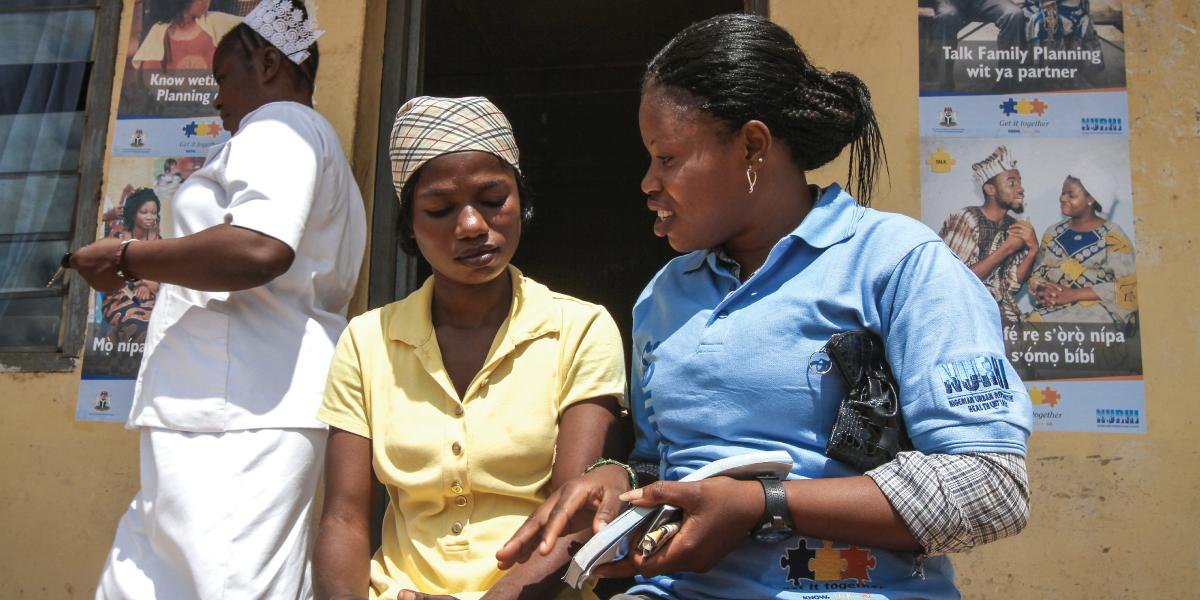Family Planning for Urban Sustainability
The Gates Foundation’s Challenge Initiative invests in family planning for urban sustainability.
As increasing economic opportunity in cities continues to attract migrants, urban dwellers will surge to 70 percent of the global population by 2050—and nearly 90 percent in Africa and Asia. But people are not just going to the cities: Cities are going to the people, says Victor Igharo, program manager of The Challenge Initiative (TCI) Nigeria.
People with low incomes often settle along cities’ periphery, where the cost of living is lower but where infrastructure, sanitation, health care, education, safety and other services thin out. As a result, urban centers are ringed by underserved slums that grow with every birth and migration. Addressing the reproductive health needs of the urban poor is essential to urban sustainability—and that’s where TCI comes in.
Supported by a three-year, $42 million grant from the Bill & Melinda Gates Foundation, the Initiative follows a demand-driven approach: Cities self-select to be part of the Initiative. They must demonstrate political commitment—expressed in terms of the financial and human resources they bring to the table—to access the Initiative’s challenge fund and technical expertise, says Jose G. Rimon II, MA, PgDip, director of the Bill & Melinda Gates Institute for Population and Reproductive Health.
Participating cities become part of a global community that shares best practices in delivering health and family planning services. Currently, TCI is working in East Africa, Francophone West Africa, India and Nigeria.
Seventy cities have expressed interest in joining the Initiative since its inception in July 2016. But it’s critical that cities remain sustainable after TCI steps away, Rimon says, which is why cities must assume an active role, from their first contact with the Initiative all the way through project design and implementation.
When the cities lead, he says, success is more likely to follow.
